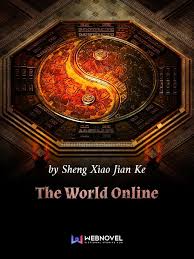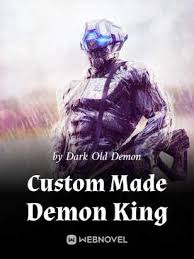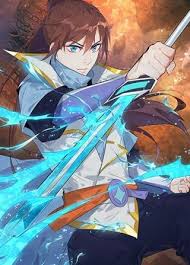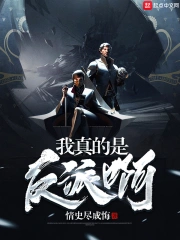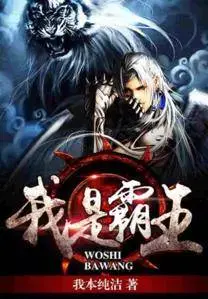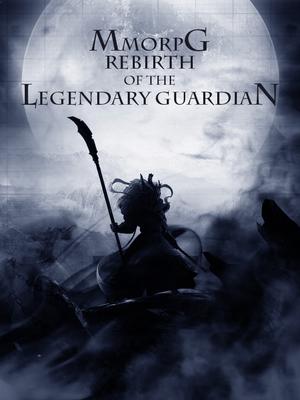The Story in 3 Sentences
A betrayed gamer, Ouyang Shuo, is flung back in time to the eve of Earth Online’s launch, armed with nothing but bitter memories and future knowledge .
He leverages his foresight to meticulously build a village into a global superpower, navigating complex quests, historical NPC generals, and ruthless player politics in a game where death means losing everything .
His journey transforms from a personal quest for vengeance into a high-stakes battle for global dominance, forcing him to confront not just rivals, but the very systems and biases of the world he seeks to rule .
Why It Stands Out
1. The Grand Strategy Simulator
It transcends typical MMO power fantasies by focusing intensely on the intricate, often dry, mechanics of statecraft—resource management, bureaucratic appointments, economic policy, and large-scale logistics—making the reader feel like they are auditing a masterclass in virtual nation-building .
2. History’s Generals as Your Subordinates
The novel’s unique hook is its seamless integration of real historical Chinese figures like Bai Qi and Han Xin as recruitable NPC officers, turning every military campaign into a thrilling clash of legendary tactics across different eras, a feature explicitly highlighted as “Earth Online’s most unique feature” .
3. A World That Feels Ten Times Larger
True to its premise, the setting isn’t just a backdrop; it’s a character. The sheer scale of the map, ten times Earth’s size, allows for emergent storytelling where distant continents, unexplored battle maps, and shifting global alliances create a dynamic, living world that constantly surprises even the protagonist .
Characters That Leave a Mark
There’s Song Jia – Ouyang Shuo’s steadfast partner and eventual wife, who evolves from a supportive girlfriend into a powerful sect leader in her own right, founding the Dongli Sword Sect and proving herself a crucial pillar of his empire .
You’ll meet Di Chen, a prominent figure whose specific role and impact are noted in fan wikis as being significant enough to be listed among key players, suggesting a major ally or rival whose actions directly shape the geopolitical landscape of the game .
And Bai Hua? They’re the one who stands out as another critical player or NPC, documented alongside other important characters, hinting at a complex relationship with the protagonist that likely involves intrigue, alliance, or direct confrontation within the game’s vast political arena .
The Flaws Fans Debate
The narrative is overloaded with an ever-expanding cast of historical and original characters, making it difficult for readers to keep track and leading to confusion and disengagement.
The story promotes a heavy-handed, nationalistic viewpoint, with some readers criticizing it for portraying Chinese historical figures and culture as inherently superior, which can be off-putting or offensive.
The core game mechanics are frequently illogical; for instance, the ability to teleport armies makes traditional siege warfare nonsensical, yet this exploit is never meaningfully addressed or utilized by any player except the protagonist.
Must-Experience Arcs
Ch. 1–50: Village Founder’s Gambit – Ouyang Shuo uses his future knowledge to secure rare starting advantages, establishing his first settlement, Shanhai Village, and laying the foundational systems for his future empire while fending off early, naive threats.
Ch. 300–500: The Siege of Xiangyang – As his territory grows, Ouyang Shuo faces his first true test of large-scale warfare, defending his city against a massive coalition. This arc showcases the novel’s blend of historical strategy and MMO mechanics, culminating in desperate, cinematic battles.
Ch. 1000–1300: Global Hegemony – In the endgame, Ouyang Shuo’s influence spans continents. This arc focuses on high-level diplomacy, espionage, and total war against international coalitions, where his administrative genius is pushed to its absolute limit to maintain control over his sprawling domain.
Killer Quotes
“Everyone wants to be loved, but not everyone wants to be loving.”
“I roughly know how to judge people, and I find that on your body, there’s the aura of an emperor.”
Cultural Impact
The novel sparked intense debate within the webnovel community, becoming a benchmark for the “kingdom-building” subgenre and inspiring numerous similar works, with fans often comparing new releases unfavorably to its scope.
Readers created extensive wikis and spreadsheets to catalog the hundreds of historical NPCs and their stats, turning fandom into a collaborative research project.
Its controversial themes, particularly its nationalism, generated countless forum threads and reviews, making it as infamous for its politics as it was famous for its ambitious world-building.
Final Verdict
Start Here If You Want:
A slow-burn, cerebral power fantasy where victory is won through spreadsheets and strategic planning, not just sword skills.
An immersive sandbox experience that lets you live out the fantasy of building a civilization from the ground up, brick by brick and policy by policy.
A story where historical legends walk beside you, turning every battle into a potential masterpiece of ancient military doctrine.
Study If You Love:
Analyzing fictional political and economic systems, as the novel provides a detailed (if flawed) case study in virtual governance and resource allocation.
The intersection of gaming culture and literature, exploring how MMO mechanics can be adapted into a compelling long-form narrative.
Deconstructing the “reincarnation cheat” trope, examining how future knowledge is used (or misused) as a narrative device for power and control.
Avoid If You Prefer:
Fast-paced, action-driven plots; the novel prioritizes administrative detail and dialogue over constant combat.
Stories with small, intimate casts; the sheer volume of named characters can be overwhelming.
Narratives that avoid cultural or political controversy; the novel’s underlying themes are a significant point of contention for many readers.
